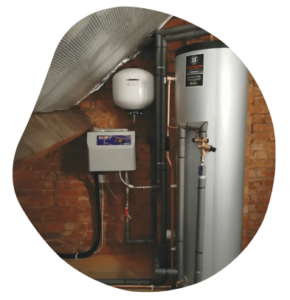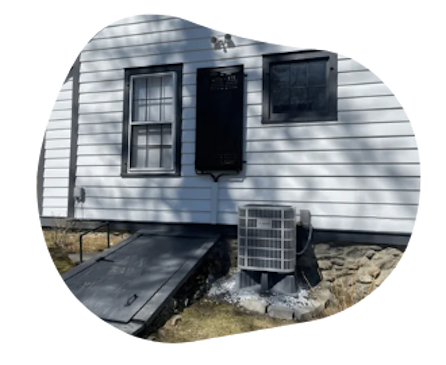
Are Solar-Assisted Heat Pumps Good for UK Homes?
As the UK strives to meet its ambitious climate goals and reduce reliance on fossil fuels, homeowners are increasingly seeking sustainable heating solutions. One promising technology is the solar-assisted heat pump (SAHP). This innovative system combines solar energy with heat pump technology to provide efficient and environmentally friendly heating. But are SAHPs a good fit for UK homes? Let’s explore their benefits, challenges, and overall suitability for the UK market.
Understanding Solar-Assisted Heat Pumps
A solar-assisted heat pump integrates two renewable technologies: solar thermal panels and a heat pump. The solar panels capture sunlight and convert it into thermal energy, which is then used to enhance the efficiency of the heat pump. The heat pump, in turn, extracts heat from the air, ground, or water and upgrades it to a higher temperature to heat the home and its water supply.
Benefits of Solar-Assisted Heat Pumps
- Energy Efficiency and Cost Savings:
- Higher Efficiency: By using solar energy, SAHPs can achieve higher efficiency compared to traditional heat pumps. The solar input reduces the electricity consumption of the heat pump, resulting in lower energy bills.
- Reduced Operating Costs: With free solar energy contributing to the heating process, homeowners can see significant reductions in their annual heating costs.
- Environmental Impact:
- Lower Carbon Footprint: SAHPs rely on renewable energy sources, significantly reducing the carbon footprint of a household. This is particularly beneficial in the UK, where heating accounts for a substantial portion of residential carbon emissions.
- Contribution to Climate Goals: By adopting SAHPs, homeowners contribute to the UK’s climate targets, helping to reduce national greenhouse gas emissions.
- Versatility and Reliability:
- Year-Round Performance: SAHPs can operate efficiently throughout the year. During sunnier months, the solar panels provide ample energy, while in winter, the heat pump ensures consistent performance.
- Adaptability: SAHPs can be integrated with various heating systems, including underfloor heating, radiators, and hot water tanks, making them suitable for a wide range of home types and sizes.
Challenges and Considerations
- Initial Investment:
- High Upfront Costs: SAHPs can be more expensive to install compared to conventional heating systems. The cost of solar panels, heat pumps, and installation can be a barrier for some homeowners. However, government incentives and long-term savings can offset these initial costs.
- Space Requirements:
- Installation Space: Solar panels require roof space or a ground-mounted setup, which might not be feasible for all homes, particularly in densely populated urban areas.
- Climate and Weather Dependency:
- Weather Variability: The efficiency of the solar component can be affected by the UK’s variable weather. While modern SAHPs are designed to work efficiently even in lower light conditions, prolonged periods of overcast weather can impact performance.
- Maintenance and Lifespan:
- Regular Maintenance: Like any heating system, SAHPs require regular maintenance to ensure optimal performance. Homeowners need to be prepared for periodic checks and servicing.
- Component Lifespan: The lifespan of solar panels and heat pumps varies. While solar panels can last 25-30 years, heat pumps typically have a lifespan of 15-20 years, necessitating eventual replacements.
Are SAHPs a Good Fit for UK Homes?
In conclusion, solar-assisted heat pumps offer numerous benefits for UK homeowners, including improved energy efficiency, reduced operating costs, and lower carbon emissions. They are particularly advantageous in homes with adequate roof space and good solar exposure. However, the high initial investment and dependency on weather conditions are important considerations.
For those committed to sustainability and looking to future-proof their homes against rising energy costs, SAHPs represent a viable and attractive option. With government incentives and technological advancements, the adoption of solar-assisted heat pumps in the UK is likely to increase, contributing to a greener, more energy-efficient future.
Final Thoughts
As the UK moves towards a low-carbon future, integrating renewable technologies like solar-assisted heat pumps into residential heating systems is a practical and impactful step. Homeowners should weigh the benefits against the challenges and consider their specific circumstances to determine if an SAHP is the right choice for their home. With the right support and planning, solar-assisted heat pumps can play a significant role in transforming the UK’s heating landscape.

